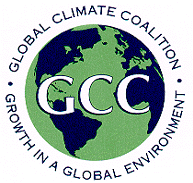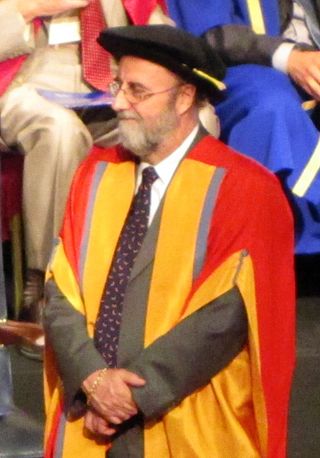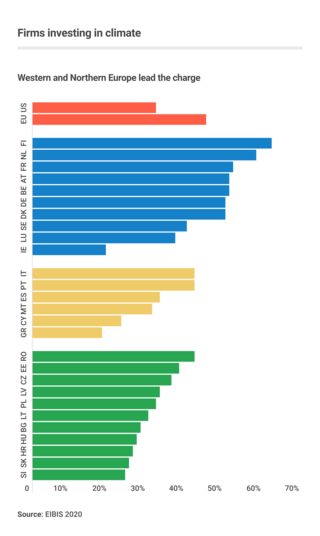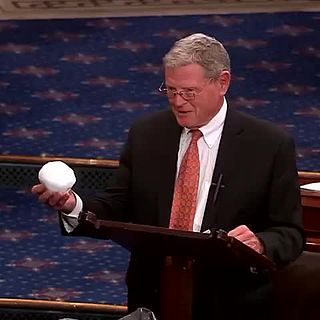
The Global Climate Coalition (GCC) (1989–2001) was an international lobbyist group of businesses that opposed action to reduce greenhouse gas emissions and engaged in climate change denial, publicly challenging the science behind global warming. The GCC was the largest industry group active in climate policy and the most prominent industry advocate in international climate negotiations. The GCC was involved in opposition to the Kyoto Protocol, and played a role in blocking ratification by the United States. The coalition knew it could not deny the scientific consensus, but sought to sow doubt over the scientific consensus on climate change and create manufactured controversy.

Sir Robert Tony Watson CMG FRS is a British chemist who has worked on atmospheric science issues including ozone depletion, global warming and paleoclimatology since the 1980s. Most recently, he is lead author of the February 2021 U.N. report Making Peace with Nature.

The Stop Esso campaign was a campaign by Greenpeace, Friends of the Earth and People and Planet aimed at boycotting the oil company ExxonMobil, on the grounds that it is damaging the environment.

Lee Roy Raymond is an American businessman and was the chief executive officer (CEO) and chairman of ExxonMobil from 1999 to 2005. He had previously been the CEO of Exxon since 1993. He joined the company in 1963 and served as president from 1987 and a director beginning in 1984.

The Council on Environmental Quality (CEQ) is a division of the Executive Office of the President that coordinates federal environmental efforts in the United States and works closely with agencies and other White House offices on the development of environmental and energy policies and initiatives.

The George C. Marshall Institute (GMI) was a nonprofit conservative think tank in the United States. It was established in 1984 with a focus on science and public policy issues and had an initial focus in defense policy. Starting in the late 1980s, the institute advocated for views in line with environmental skepticism, most notably climate change denial. The think tank received extensive financial support from the fossil fuel industry.
Myron Ebell is an American climate change denier who served as the Director of Global Warming and International Environmental Policy at the Competitive Enterprise Institute (CEI), an American libertarian advocacy group based in Washington, D.C. He was also chairman of the Cooler Heads Coalition, a politically conservative group formed in 1997 focused on "dispelling the myths of global warming by exposing flawed economic, scientific, and risk analysis". In September 2016, Ebell was appointed by then Republican presidential candidate Donald Trump to lead his transition team for the United States Environmental Protection Agency (EPA).
The American Petroleum Institute (API) is the largest U.S. trade association for the oil and natural gas industry. It claims to represent nearly 600 corporations involved in production, refinement, distribution, and many other aspects of the petroleum industry.

Business action on climate change is a topic which since 2000 includes a range of activities relating to climate change, and to influencing political decisions on climate change-related regulation, such as the Kyoto Protocol. Major multinationals have played and to some extent continue to play a significant role in the politics of climate change, especially in the United States, through lobbying of government and funding of climate change deniers. Business also plays a key role in the mitigation of climate change, through decisions to invest in researching and implementing new energy technologies and energy efficiency measures.
Frederick Steven "Rick" Piltz was a former senior associate in the U.S. Climate Change Science Program. In March 2005, he resigned over political interference in the program's climate change reports. In June 2005, the New York Times exposed the role of Philip Cooney in editing government documents on climate change to create an appearance of scientific uncertainty. A former lobbyist with the American Petroleum Institute, Cooney resigned and days later took a job at Exxon Mobil.

The fossil fuels lobby includes paid representatives of corporations involved in the fossil fuel industry, as well as related industries like chemicals, plastics, aviation and other transportation. Because of their wealth and the importance of energy, transport and chemical industries to local, national and international economies, these lobbies have the capacity and money to attempt to have outsized influence on governmental policy. In particular, the lobbies have been known to obstruct policy related to environmental protection, environmental health and climate action.

Climate change denial is a form of science denial characterized by rejecting, refusing to acknowledge, disputing, or fighting the scientific consensus on climate change. Those promoting denial commonly use rhetorical tactics to give the appearance of a scientific controversy where there is none. Climate change denial includes unreasonable doubts about the extent to which climate change is caused by humans, its effects on nature and human society, and the potential of adaptation to global warming by human actions. To a lesser extent, climate change denial can also be implicit when people accept the science but fail to reconcile it with their belief or action. Several studies have analyzed these positions as forms of denialism, pseudoscience, or propaganda.

Kivalina v. ExxonMobil Corp., No. 4:08-cv-01138, was a lawsuit filed on February 26, 2008, in a United States district court. The suit, based on the common law theory of nuisance, claims monetary damages from the energy industry for the destruction of Kivalina, Alaska by flooding caused by climate change. The damage estimates made by the U.S. Army Corps of Engineers and the Government Accountability Office are placed between $95 million and $400 million. This lawsuit is an example of greenhouse gas emission liability.

ExxonMobil Corporation is an American multinational oil and gas corporation and the largest direct descendant of John D. Rockefeller's Standard Oil. The company, which took its present name in 1999 per the merger of Exxon and Mobil, is vertically integrated across the entire oil and gas industry, and within it is also a chemicals division which produces plastic, synthetic rubber, and other chemical products. ExxonMobil is headquartered near the Houston suburb of Spring, Texas, though officially incorporated in the U.S. state of New Jersey. The company is the largest oil and gas company based in the US, America's third largest by revenue among all industries, and the eighth largest in the world.
Greenpeace USA is the United States affiliate of Greenpeace International, an environmental nonprofit organization that spawned a social movement inspired by direct actions on the high seas to stop whaling and nuclear testing. Headquartered in Washington D.C., Greenpeace U.S.A. operates with an annual budget of approximately $40 million, employing over 500 people in 2020. The organization relies on donations from members, refuses corporate contributions and refrains from endorsing political candidates, though in 2020 Greenpeace USA issued climate scorecards for presidential candidates and ranked them from best to worst on climate
The Soon and Baliunas controversy involved the publication in 2003 of a review study titled Proxy climatic and environmental changes of the past 1000 years, written by aerospace engineer Willie Soon and astronomer Sallie Baliunas and published in the journal Climate Research. In the review, the authors expressed disagreement with the hockey stick graph and argued that historical temperature changes were related to solar variation rather than greenhouse gas emissions as was the position of the Intergovernmental Panel on Climate Change and other researchers. The publication was quickly taken up by the George W. Bush administration as a basis for amending the first Environmental Protection Agency's Report on the Environment.
The climate change policy of the United States under the presidency of George W. Bush differed from Bush's promises on the campaign trail to regulate carbon dioxide emissions from power plants: within two months of taking office he walked away from his commitment.

As the world's largest majority investor-owned oil and gas corporation, ExxonMobil has received significant amounts of controversy and criticism, mostly due to its activities which increase the speed of climate change and its denial of global warming.

From the 1980s to mid 2000s, ExxonMobil was a leader in climate change denial, opposing regulations to curtail global warming. For example, ExxonMobil was a significant influence in preventing ratification of the Kyoto Protocol by the United States. ExxonMobil funded organizations critical of the Kyoto Protocol and seeking to undermine public opinion about the scientific consensus that global warming is caused by the burning of fossil fuels. Of the major oil corporations, ExxonMobil has been the most active in the debate surrounding climate change. According to a 2007 analysis by the Union of Concerned Scientists, the company used many of the same strategies, tactics, organizations, and personnel the tobacco industry used in its denials of the link between lung cancer and smoking.

Climate change litigation, also known as climate litigation, is an emerging body of environmental law using legal practice to set case law precedent to further climate change mitigation efforts from public institutions, such as governments and companies. Finding that climate change politics provides insufficient climate change mitigation for their tastes, activists and lawyers have increased efforts to use national and international judiciary systems to advance the effort. Climate litigation typically engages in one of five types of legal claims: Constitutional law, administrative law, private law, fraud or consumer protection, or human rights.













